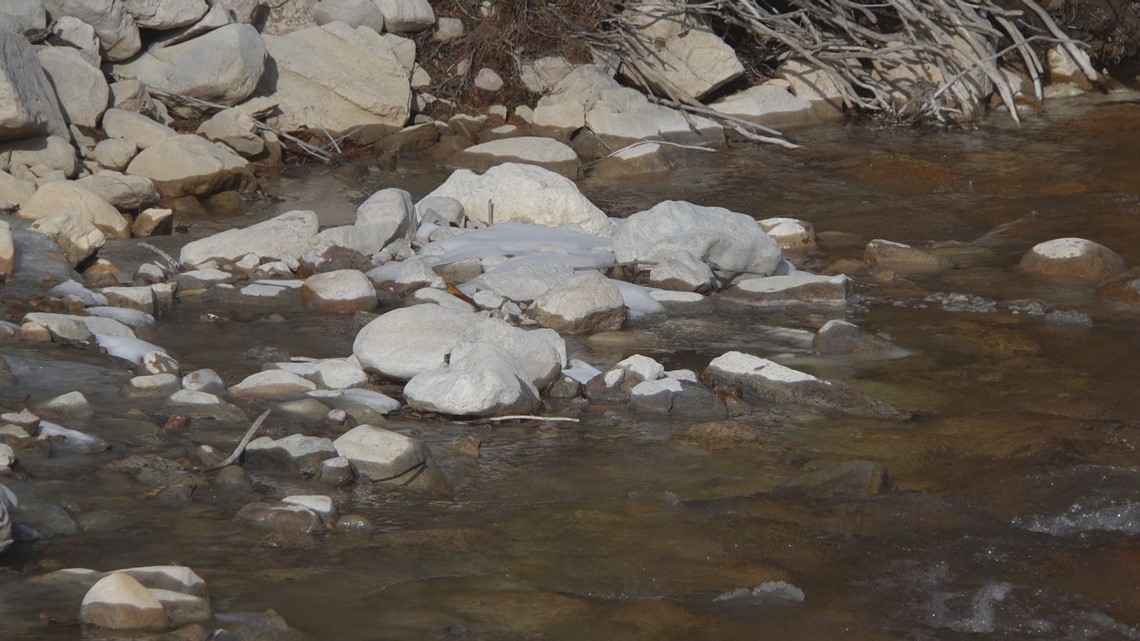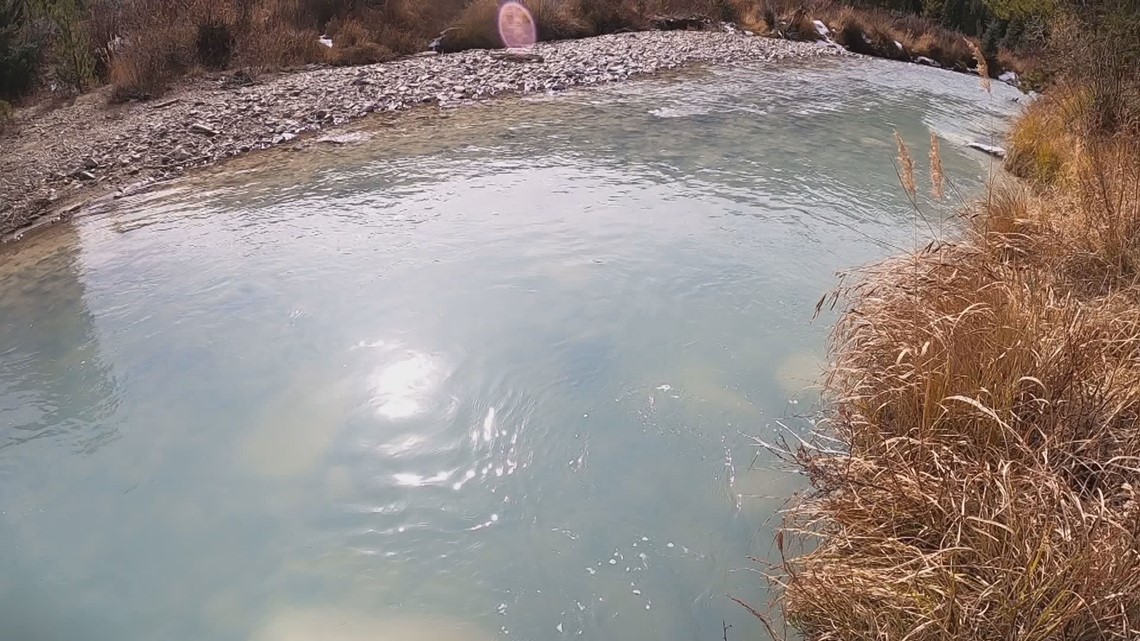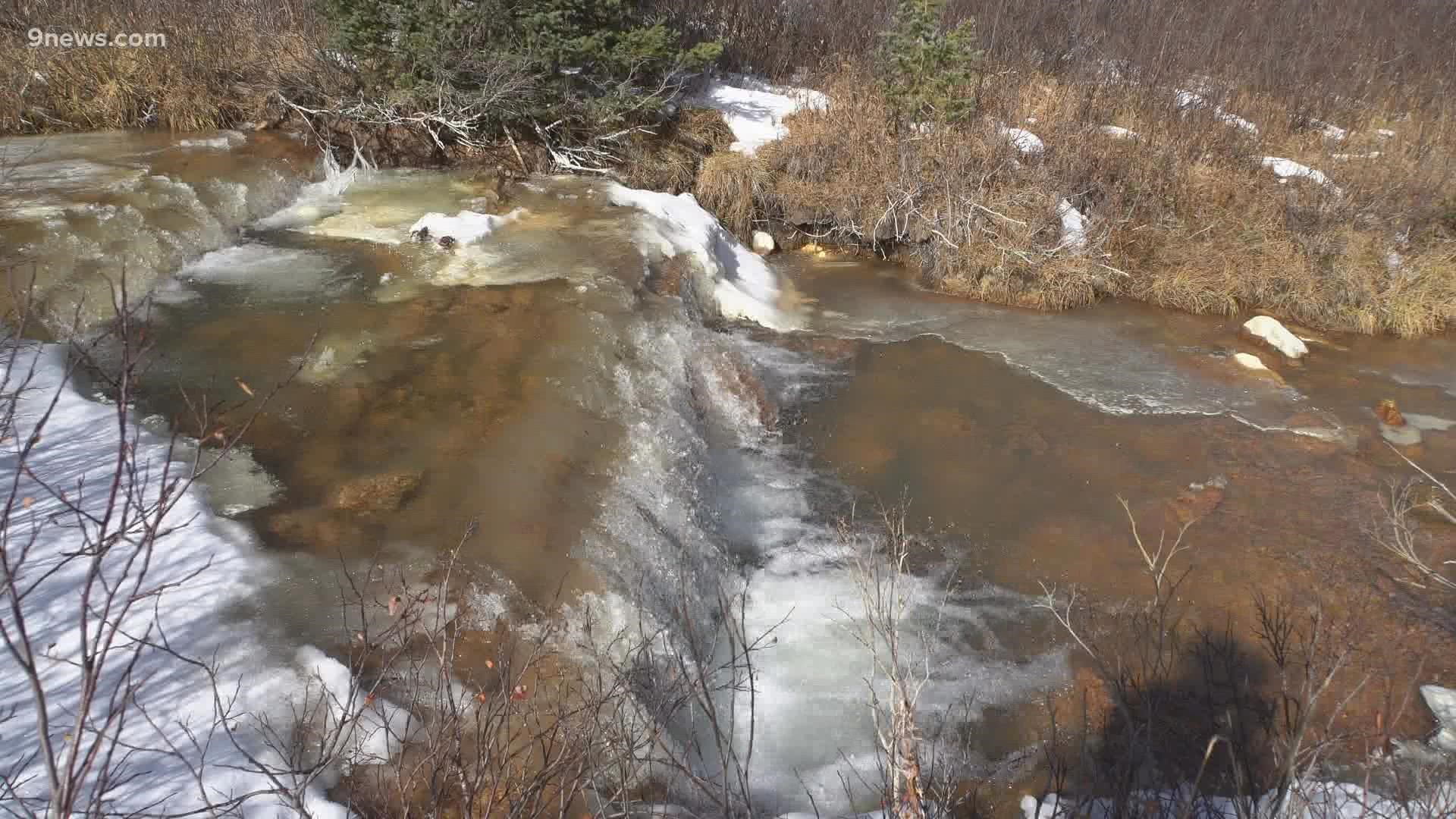SUMMIT COUNTY, Colo. — University of Colorado-Boulder scientists like Dr. Garrett Rue have been studying the Upper Snake River in Summit County for years.
"I came up here almost 10 years ago now," Rue said.
In that time, he’s been part of a first-of-its-kind study published in the journal Environmental Science & Technology on how climate change is affecting the river.
According to the study, climate change is causing warmer temperatures and lower snowpack that makes rare earth elements leach out of rocks into the water in higher concentrations.
“As flows become lower and acidity increased, and PH lowers, more metals are leached and more are transported downstream,” Rue said.


The effects can be seen in the water of the river near Montezuma. It flows red from iron and blue from cadmium, and rocks are coated white from aluminum.
There are no fish, except for those that are stocked for fishing.
"We have habitat here that is inhospitable to aquic organisms,” Rue said.


Water from the Upper Snake River eventually flows into Dillon Reservoir, which is part of Denver’s water supply. Scientists say they aren't sure what the effects of elevated metals in the water would have on the water supply or with people.
The study used samples taken from the river over 40 years, with concentrations of metals a thousand times higher than in larger rivers at its headwaters. It's a spot that Rue said scientists will be studying for years to come.
“Sampling streams like this over a long period of time is really the only way to know things are changing,” he said.


SUGGESTED VIDEOS: Colorado Climate

